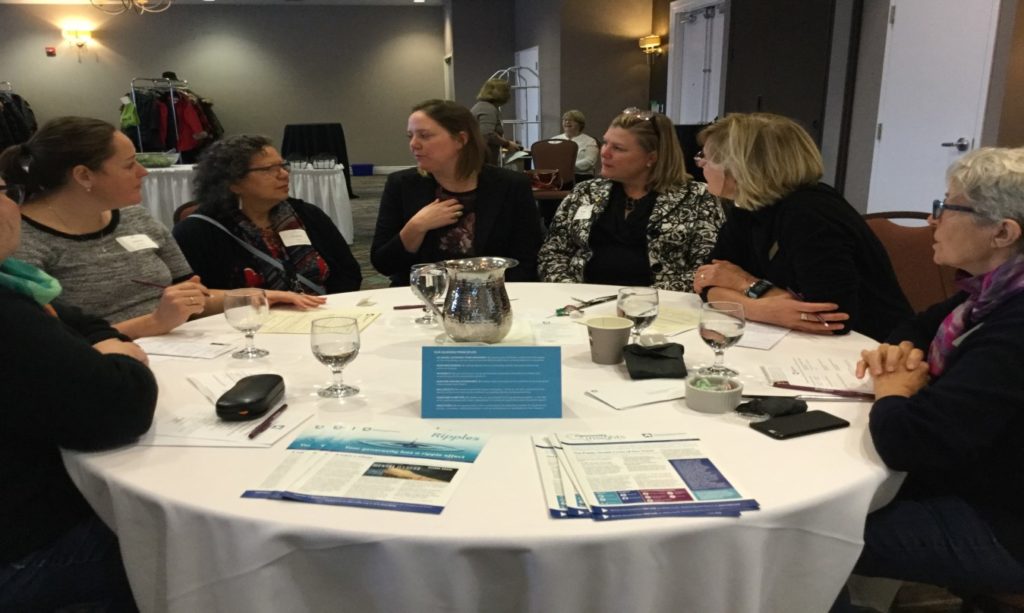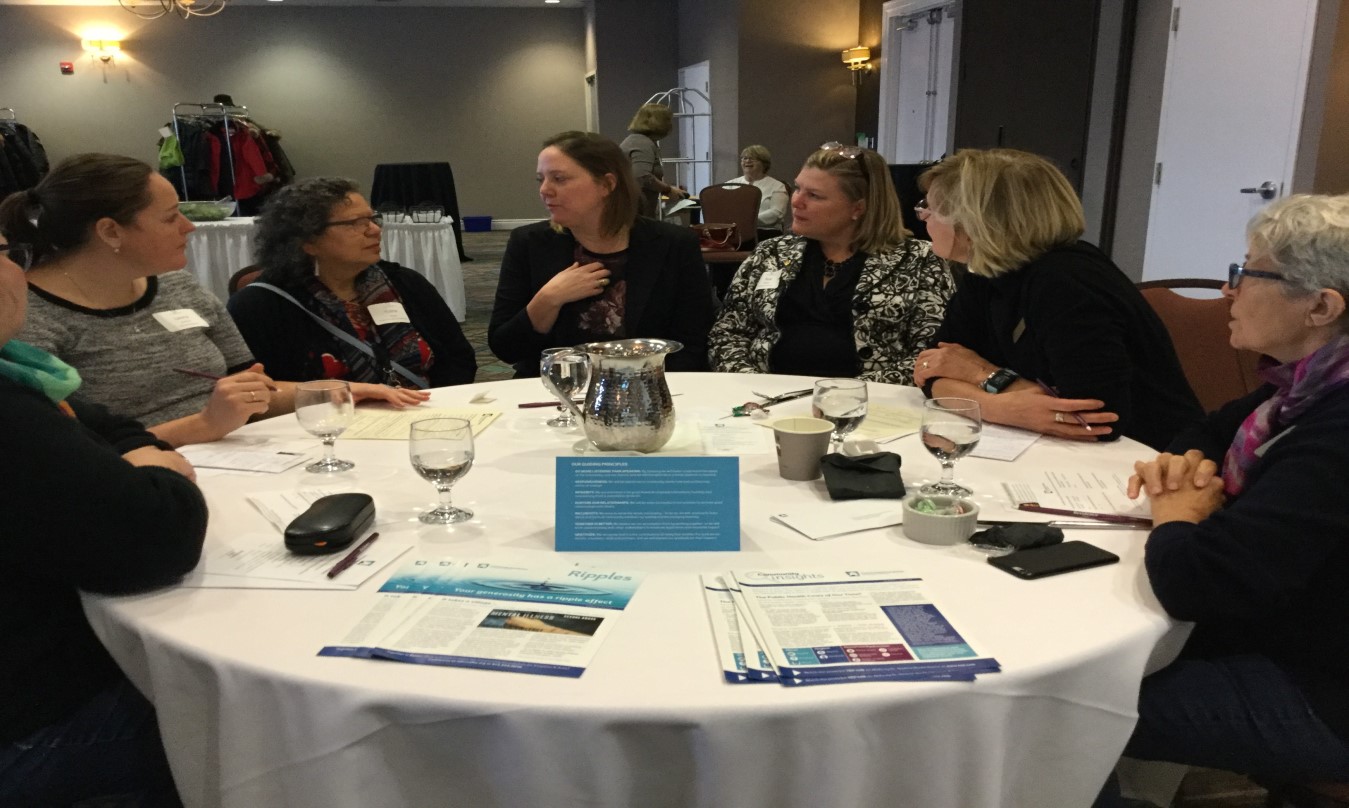Never Too Soon: Building strong mental health in the very early years

Never Too Soon: Building strong mental health in the very early years
Our recent explorations on how to mitigate the impacts of Adverse Childhood Experiences (ACEs) continued by looking at mental health in the very early years – starting with conception!
Dr. Chaya Kulkarni, Director of Infant Mental Health Promotion at The Hospital for Sick Children in Toronto, was the keynote speaker at our November Speaker’s Series luncheon. Dr. Kulkarni presented a compelling case for addressing mental health in infants, toddlers and young children. She noted that all children are born with a history; and that history begins with brain activity in the womb. She reported to a rapt audience that infancy is a period of profound development in the brain – with over 1 million neural connections being made every second!
Contrary to the myth that an infant or a very young child is ‘too young’ to understand stress or trauma and therefore ‘won’t remember’, we learned that early experiences have significant impact on how a child’s brain is wired, which will impact future mental and physical health. Thus, the greatest opportunity to influence developmental outcomes is in the first three years of life.
The take-away message: Relationships Build Brains! With a million connections being formed every second, every interaction – a smile, a hug – will influence a child’s brain development, and the quality of that interaction counts!
When a child goes to school hungry, he will not focus on learning; he will focus on snack time. When a child experiences physical abuse at home, she will be afraid to trust. Early memories – such as of hunger and abuse – are wired into the brain, and they affect behaviour.
Following the keynote presentation, Connie Wowk (Kingston Frontenac Lennox and Addington Public Health) and Anne Biggar (Maltby Centre) reported on the work of the local Prenatal to Six working group in support of local infant mental health services. Current initiatives include the Positive Parenting Campaign and promotion of the 18-Month Enhanced Well-Baby Visit Program.
After the presentations, participants engaged in lively table discussions about children’s mental health. In a community focus group format, tables responded to questions such as “What can YOU do to support infant mental health?” and “If your table had the power to implement ONE THING in our community to improve mental health, what would it be?”. Audience members – a diverse group including teachers, early childhood educators, policy makers, business owners, and interested citizens alike – discussed what we can do individually and as a community to support infant mental health.
A representative from each table shared recommendations with the group. Home visits for young mothers, additional education and resources for health care workers were two of the recommendations for tangible ways to address the mental health of children in our community.
The Prenatal to Six working group intends to incorporate comments from participants and the information from Dr. Kulkarni’s presentation into the local roadmap for mental health currently under development.
Dr. Kulkarni shared the following fable with attendees: Many adults are sitting beside a fast-flowing river, and suddenly a wee baby floats toward them in distress. One adult jumps in to rescue the child. And then another baby appears, arms flailing in obvious distress. A second adult jumps in. And then another baby appears. One of the adults begins to run away and another calls out “Where are you going? We need your help!”.
The response? “I’m going to find out why the babies are in the water and do what I can to prevent this tragedy”.
The fable highlights the need for action to address mental health issues in infants and very young children before mental health problems surface. While mental health issues in adults and older children are now widely discussed, researched and addressed, infants and young children are not often included in the conversation.
Dr. Kulkarni shared a final bit of wisdom worth passing on: when you think a child is GIVING you a hard time, it is likely that child is HAVING a hard time.
Our call to action: be kind to every child, at every opportunity.
Want to learn more?
- Click here to see Dr. Kulkarni’s presentation
- Click here to see the presentation from our local Prenatal to Six working group
- Click here for a resource list: Infant Mental Health – Further Reading/Resources
Interested in attending future Foundation events? Subscribe to our newsletter at www.cfka.org. Follow us on social media @CFKingstonArea.
I NEED FUNDING
PROFESSIONAL ADVISORS
For Professional Advisors
Benefits of Working With Us
Tools and Resources
How to Set Up a Fund
275 Ontario Street Suite #100
Kingston, ON K7K 2X5
Phone: 613.546.9696
Fax: 613.531.9238
Email: info@cfka.org

275 Ontario Street Suite #100
Kingston, ON K7K 2X5
Phone: 613.546.9696
Fax: 613.531.9238
Email: info@cfka.org


